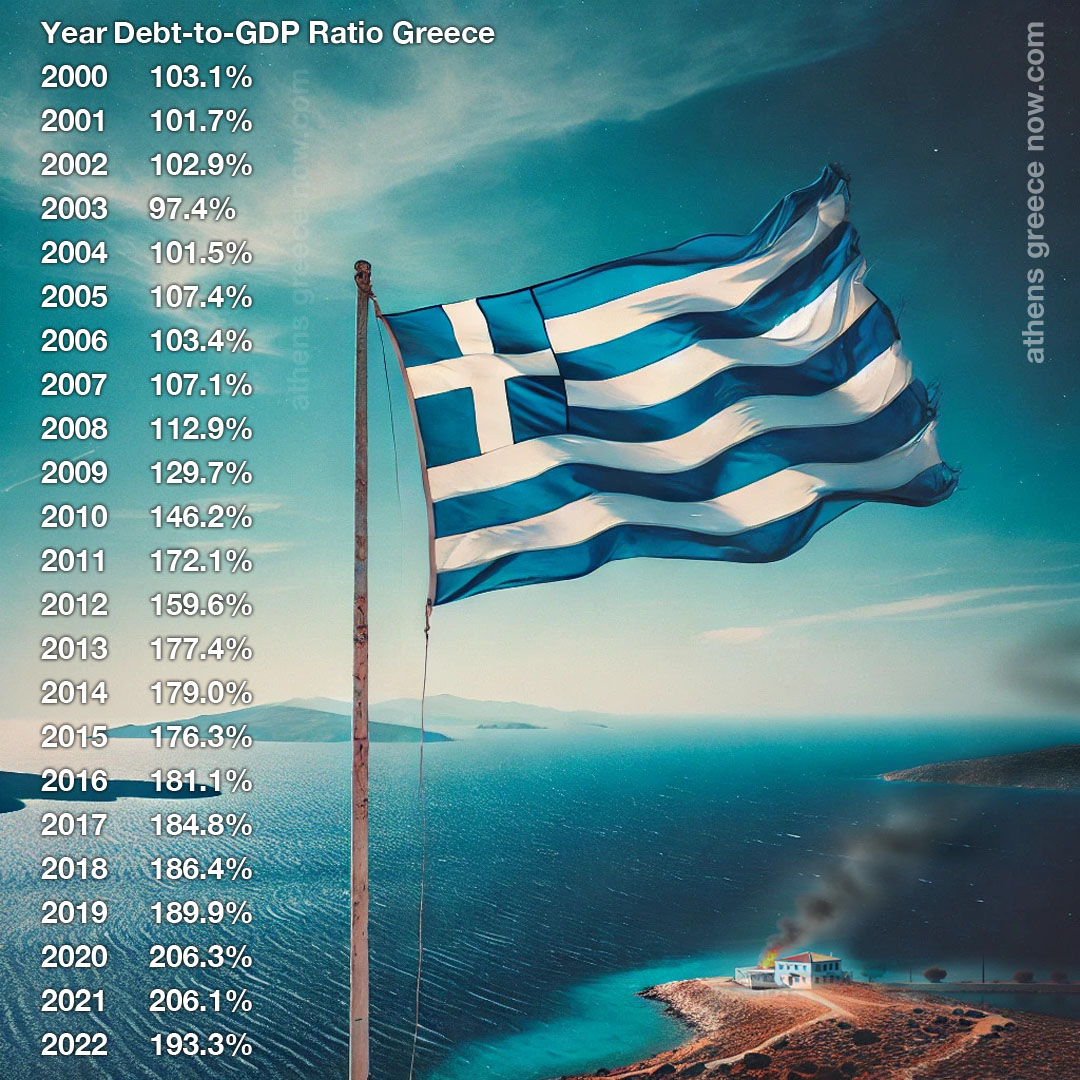Another Greek Economic Crisis?
Greece Heads Into Another Economic Crisis: Time To Finally Exit The European Union? - Forbes January 5, 2017
Forbes presents a long-ish article by Doug Bandow which provides a overview of the Hellenic economic crisis and contains a nicely done short version of how it got to be this crazy. The history of actions by the EU and Greek politicians detailed in the article is more or less what you have probably heard before, that is, decisions based upon immediate political need with numbers distorted to fit that need (most of the blame here is leveled onto the Greeks, though it would have been good of the author to extrapolate further on how the austerity program was born and why, as he writes "...Which led in 2010 to the start of three bail-outs cumulatively worth almost $370 billion. Greece was the nominal recipient of the cash"). Some have more flatly stated the cash transfers look sometimes like an international money-laundering operation.
In the article there seems to be an attitude that this whole issue is a shell-game of expectations vs reality that can only go on for so long (the piece also contains the de rigueur cheap-shot at the Greeks in general as being 'lazy' - i.e., "... Greeks long have enjoyed a Mediterranean culture very different from that of the northern European states. Time is flexible, leisure is mandatory, and work is unfortunate. Government is a tool by which everyone attempts to live off of everyone else...") That the article provides genuine insights and then tries to wrap it together with such smelly generalizations hurts what Forbes is offering.
There is the alternative view (not in the Forbes piece) that with austerity as a program rolling onward into it's eighth year it seems more likely all of the parties involved will just keep right on "shoveling money" (as the author says) at the problems. What would be best (in this article or some other) would be something that investigates in a definitive fashion what the trigger has to be to end the numbers charade, a political position that forces math to finally take over the matter, if only for a little while. Also unaddressed is the EU's need to keep Greece embedded into it's EU system in order to directly influence (or, really, control) the immigration influx that uses Greece as the door to Germany, Sweden, France, etc.
The article's author hopes that the Greek government will unleash entrepreneurial liberty for the Greeks but the article then completely ignores two realities: one is that Greece has a shadow-economy and the entrepreneurial spirit is unleashed there, but obviously nearly invisible to the statistics quoted by the writer. The second item is that Greece has seen a net outflow of 500,000 people during this period, and the Greek 'brain drain' has been significant. The Forbes article should address this more clearly than just saying legislation on easing of business regulation is needed. It certainly is needed, there's no argument there, but that alone would not deal with the other two matters. Merging the underground economy into the above-ground, insuring that Greece doesn't have to lose any more capable people and can lure back some of those lost, is as important, because fudging the regulation laws alone can't fix the other two.
"...Tsipras mocked “fool technocrats … who can’t even get their numbers right.” Looking toward a possible early election, he added: “we are not going to ask anyone about giving surplus money to those most in need.” His finance minister charged the IMF with “economizing with the truth.” The deputy education minister, representing a small, right-wing coalition partner, charged that his country was being “blackmailed.” Indeed, he added, “For centuries, Greeks have been mercilessly oppressed by the Westerners.”
...Greece’s debt to GDP ratio hit about 100% in 2000, with the country preparing to replace the Drachma with the Euro. Debts began heading up in the latter part of the decade. When creditors finally noticed that Athens might be in a bit over its head back in 2009, Greece’s debt to GDP ratio was about 127%. Today Greece owes around $320 billion and its debt to GDP ratio is roughly 174%, second in the world only to far wealthier Japan. (The debt relief being discussed would only drop that by about 20 points—by 2060!)
May 10, 2016
'Everyone’s outraged': angry Greeks foresee Grexit and drachma's revival - UK Guardian
"A mild man in milder times, Nakos finds himself becoming increasingly angry. So, too, do the vast majority of Greeks who walked through his door on Monday. “Everyone’s outraged, they’ve been swearing, insulting the government, calling [prime minister] Alexis Tsipras a liar,” he exclaims after parliament’s decision on Sunday night to pass yet more austerity measures. “And they’re right. Everything he said, everything he promised, was a fairy tale.”
Until the debt-stricken country’s financial collapse, shops like this were the lifeblood of Greece. For small-time merchants, the pain has been especially vivid because, like everyone Nakos knows, he voted for Tsipras and his leftist Syriza party."
Related:
2011 – Creating the European Financial Stability Facility (EFSF) & the "PIIGS"
2017 – Another Greek Economic Crisis?
The Drachma almost returned to Greece 2013–2017
Greek economic Survival in the 1990s



Greece's Golden Visa program

